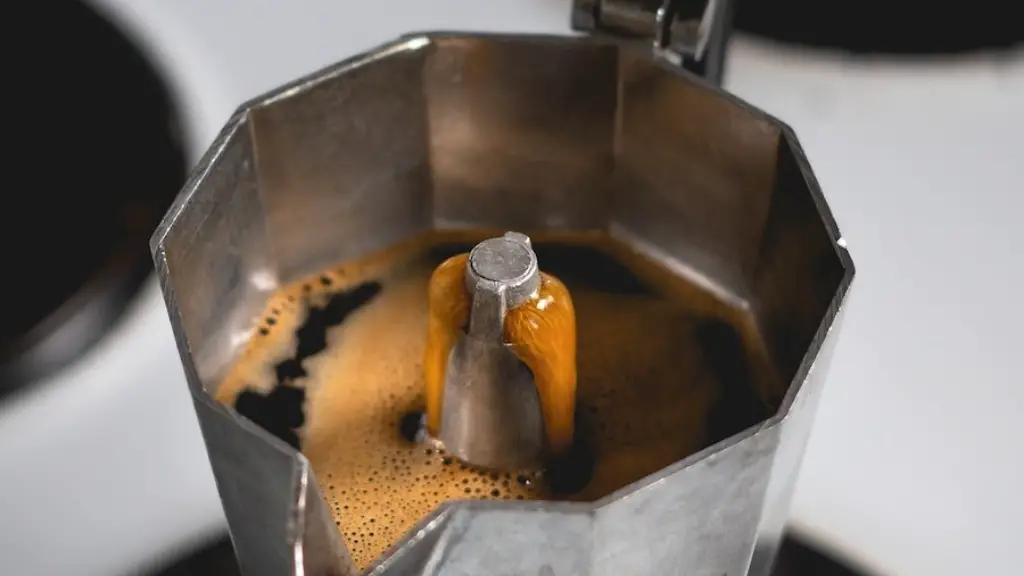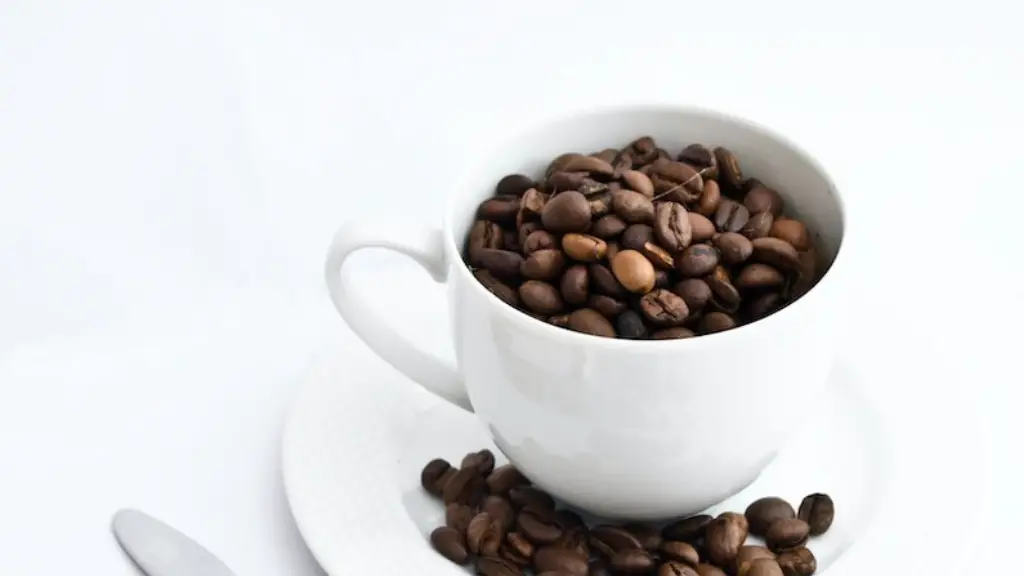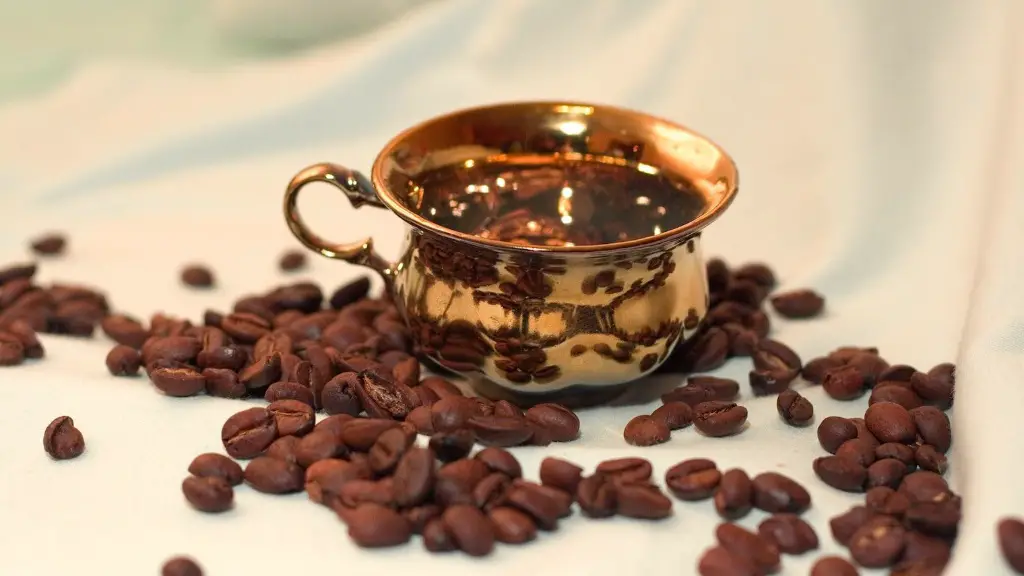It’s a fact of life for many frequent travelers: the dreaded airplane coffee. While it can be tempting to reach for a cup of joe during long flights, you should think twice before taking a sip. Airplane coffee is often brewed from unfiltered water, making it susceptible to bacteria and other contaminants. Plus, the air pressure inside an airplane cabin can affect the taste of your coffee.
If you must have your daily fix while in transit, there are a few things you can do to reduce your risk of drinking bad coffee. One option is to bring your own instant coffee packets or single-serving cups with you on the plane. This way, you know exactly what’s going into your cup. Another option is to purchase bottled water and make your own coffee using a French press or an Aeropress.
However, no matter how safe or convenient it may seem, it’s best to avoid drinking coffee on airplanes altogether. The combination of stale air and questionable brewing supplies can lead to an unpleasant experience that could ruin your flight.
Disadvantages of Drinking Coffee on Airplanes
Coffee is a popular drink for travelers, but it’s important to be aware of the potential drawbacks of drinking coffee on an airplane. The air pressure inside the cabin is much lower than at sea level, so the effects of caffeine may be stronger than usual. This can lead to feelings of restlessness and anxiety, which can make flying more unpleasant. Additionally, drinking hot beverages on airplanes can be dangerous due to turbulence, as spills can easily occur and burn passengers. It’s best to avoid drinking coffee on an airplane altogether.
Furthermore, airline coffee is often not brewed with filtered water, and therefore may contain bacteria or parasites that could make passengers ill if consumed. This can be especially problematic if you have a weakened immune system or are pregnant. Also, many airlines serve coffee with sugar and creamers that contain unhealthy ingredients such as trans fats and high-fructose corn syrup. These additives could lead to an unhealthy spike in blood sugar levels.
In conclusion, while drinking coffee is certainly a tempting option while flying, it’s best to avoid this beverage altogether due to its potential risks and drawbacks. Water is a much safer option for staying hydrated during flight, so it’s recommended to opt for this instead when traveling by plane.
Health Risks of Drinking Coffee on Airplanes
Coffee served on airplanes has been known to contain high levels of bacteria, posing a health risk for passengers. Studies have found that coffee in airplane cabins is likely to contain mold, yeast, and other harmful bacteria due to the environment inside the aircraft and the water used in brewing. Additionally, coffee served at high altitudes is typically hotter than coffee served on land, making it easier for harmful microorganisms to survive and thrive.
Drinking coffee on airplanes can lead to a range of digestive issues such as nausea, vomiting, diarrhea, and abdominal pain. In extreme cases, consumption of contaminated coffee can even cause more serious illnesses such as food poisoning. To avoid these potential health risks, it is recommended that passengers avoid drinking coffee while flying.
Discomfort in Drinking Coffee on Airplanes
Drinking coffee on airplanes may seem like a great way to start the day, but it can also cause a great deal of discomfort. The air pressure and cabin air can cause coffee to expand and become overly hot, making it difficult to drink. This can cause stomach upset as well as nausea and headaches. Also, with the limited space and movement on an airplane, it can be difficult to find a place to put your cup of coffee. Additionally, spills are common due to turbulence, which can make for an uncomfortable flight. Overall, it is best to avoid drinking coffee on airplanes and opt for other beverages that are easier to handle and less likely to cause discomfort.
Environmental Impact of Drinking Coffee on Airplanes
Drinking coffee on airplanes can have a negative impact on the environment. Coffee brewed onboard emits carbon dioxide, which contributes to climate change. Furthermore, the waste generated from making and disposing of cups, lids, and napkins adds to the amount of trash sent to landfills. The use of single-use plastics is especially concerning, as they often end up in oceans and waterways where they can harm marine life.
Additionally, when coffee makers are used onboard an airplane, they require water, meaning water must be heated. This requires energy and contributes to the plane’s carbon footprint. Furthermore, many commercial flights serve coffee that is pre-packaged in paper cups or plastic lids and straws that often cannot be recycled or reused.
To reduce the environmental impact of drinking coffee on airplanes, passengers should avoid ordering coffee while flying whenever possible. If they do want a cup of joe while in the air, they should look for airlines that use reusable mugs or ceramic cups instead of single-use containers. Passengers should also opt for travel mugs that can be filled with coffee from home before boarding a flight to reduce waste from disposable cups or plastic lids and straws.
Finally, travelers can support environmentally conscious airlines by choosing companies that prioritize sustainability and reducing their environmental footprint wherever possible.
Alternative Beverages to Coffee on Airplanes
Traveling on an airplane doesn’t have to mean giving up your favorite hot beverage. While coffee isn’t the best beverage for flying, there are still plenty of other options available. Hot tea is a great alternative, as it contains less caffeine than coffee and is still warm and comforting. Herbal teas are also an option, providing a variety of flavors and no caffeine at all. For those who want something other than hot beverages, cold drinks like juices and sodas can be found on most flights. For a caffeine-free option, sparkling water or flavored seltzers can provide some refreshment. Finally, for those who still crave the taste of coffee but don’t want the effects of the caffeine, decaf is usually available as well.
No matter what you choose to drink while flying, it’s important to stay hydrated throughout your journey. Having a full water bottle is an easy way to make sure you’re taking in enough fluids throughout your flight.
Measures to Take When Refraining from Drinking Coffee on Airplanes
Staying away from coffee while flying can be challenging due to the aroma of freshly brewed coffee that can be found throughout the airport and on board many flights. However, it is important to refrain from drinking coffee while flying due to the potential dehydration and other health risks associated with caffeine consumption at high altitudes. Here are some tips on how to avoid drinking coffee on an airplane:
1. Bring a Water Bottle: Having a water bottle on hand will help keep you hydrated during the flight and will also provide an alternative for when you’re feeling tempted by the smell of coffee.
2. Snack Smart: Pack healthy snacks like fruits, vegetables, nuts, or protein bars that will give you energy and help keep your hunger at bay.
3. Stay Hydrated: Drink plenty of water during the flight and try to avoid sugary drinks that can cause dehydration.
4. Get Up and Move: Taking a walk around the cabin can be a great way to get your blood flowing and keep your mind off coffee.
5. Sleep: If possible, try to get some sleep during your flight as this will help reduce fatigue and reduce cravings for caffeine-based beverages.
To Sum it All Up
Drinking coffee on airplanes is not recommended due to safety, health, and convenience reasons. Coffee makers on planes are known to be dirty and unsanitary, making it potentially dangerous for passengers. Furthermore, the air in an airplane is quite dry and coffee can dehydrate you further causing headaches and exhaustion. Finally, the turbulence of an airplane can make it difficult for coffee to remain in your cup or mug when in flight. Therefore, it is best to stay away from coffee while traveling by plane.
Overall, drinking coffee on airplanes should be avoided as there are several risks associated with it. It is not worth taking the chance of becoming ill or having a spilled cup of hot liquid in a confined space. Moreover, there are other beverages available that don’t have as many risks attached to them. The bottom line is that drinking coffee on airplanes isn’t recommended and should be avoided if possible.





